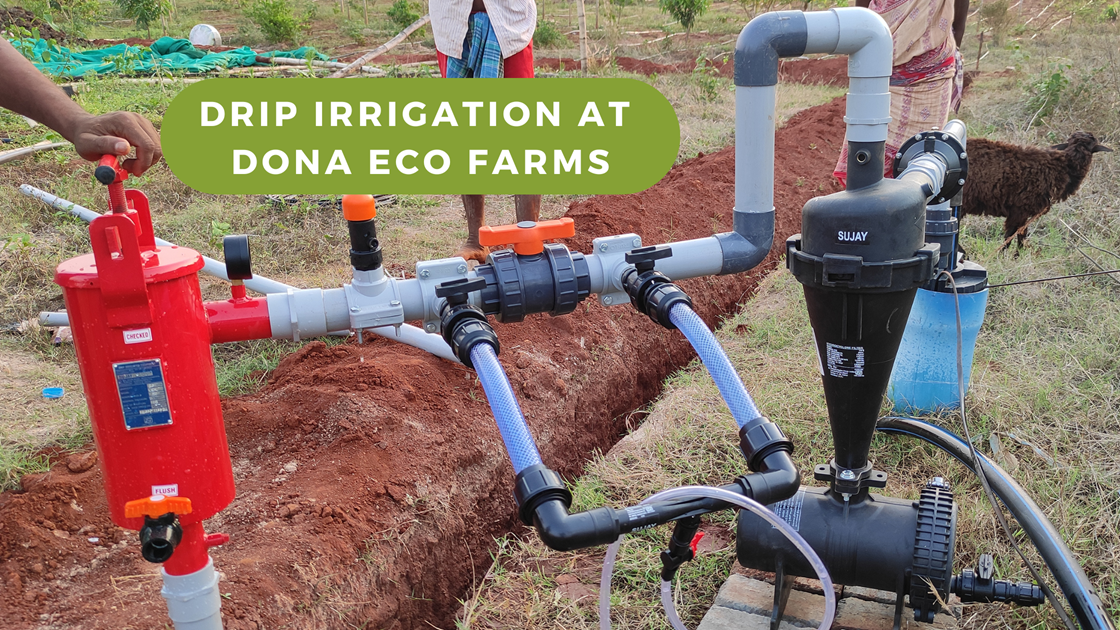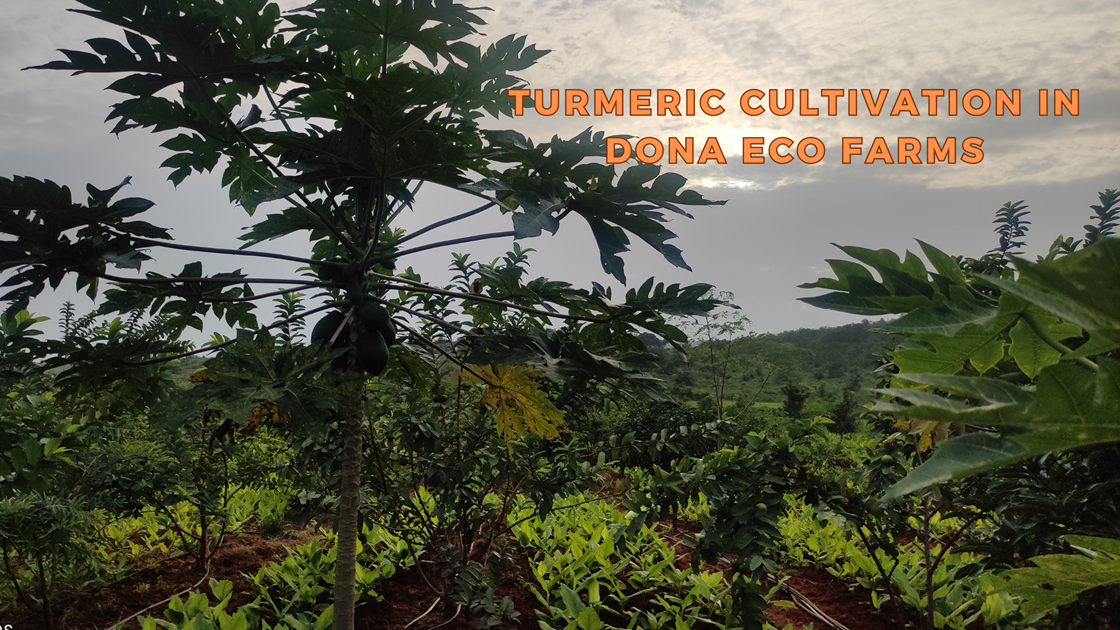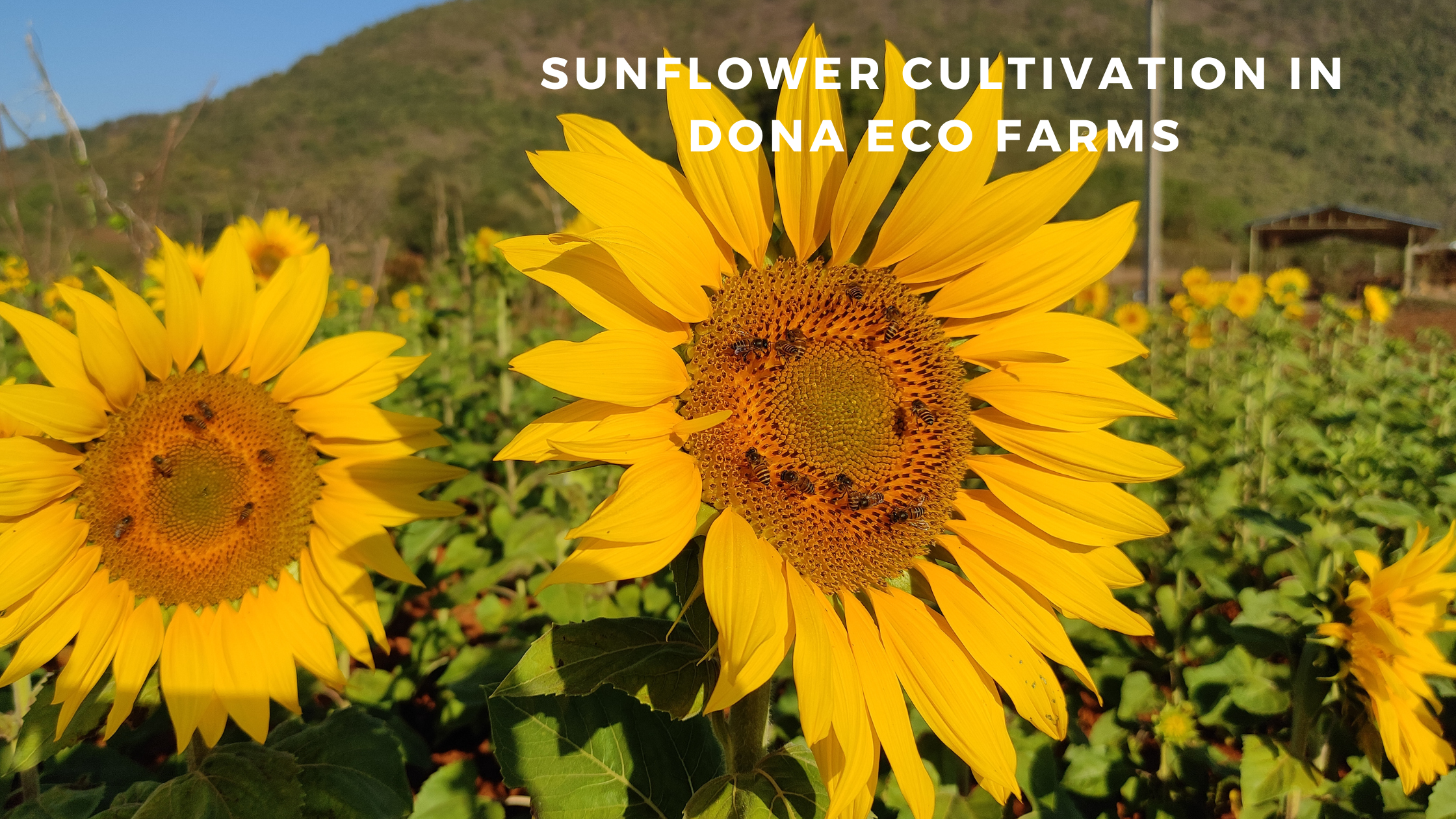At Dona Eco Farms, our journey toward sustainability has always been guided by a deep commitment to making the most efficient use of resources. Water, being one of the most critical elements for farming, was at the forefront of our planning right from the start.
Initially, we relied on a nearby water stream, using a solar-based pump to bring water to our crops. While this method served us well in the early days, it was time-consuming and often challenging. We soon realized that to achieve our goals of sustainable and efficient farming, we needed a more effective irrigation system. This led us to install a comprehensive drip irrigation system across our entire farm, which has revolutionized the way we manage water and grow our crops.
Our Initial Watering Challenges:
In the early stages of Dona Eco Farms, we planted a variety of crops using water from a nearby stream. This stream provided a natural water source, but it required us to set up a solar pump to bring the water to our fields. While innovative, this method was labor-intensive and took up a significant amount of time. The process of manually watering the crops became a daily challenge, and it was clear that we needed a more efficient solution if we were to expand and sustain our farm’s operations.
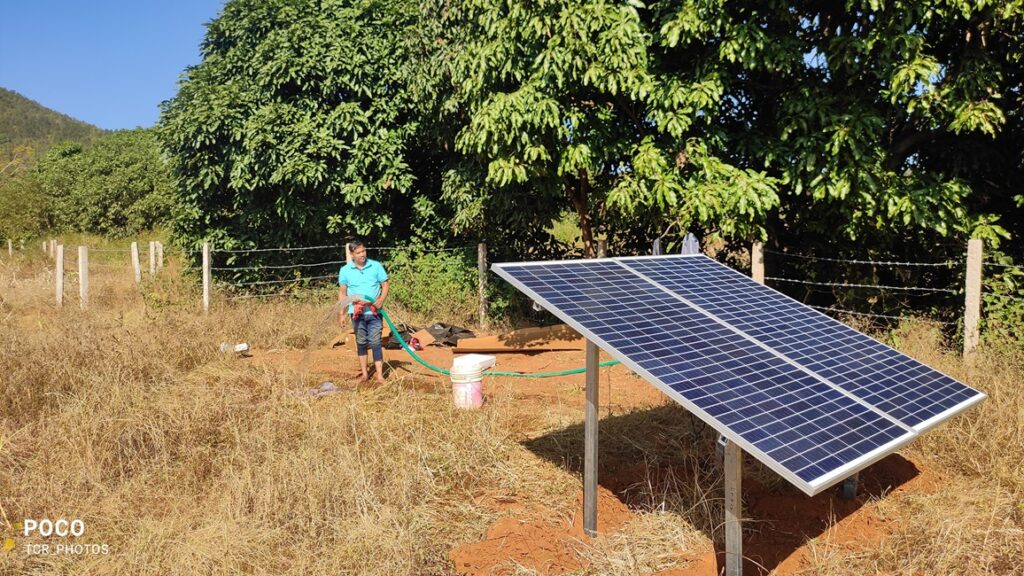
This realization led us to explore drip irrigation, a method that not only conserves water but also ensures that every drop is used effectively. We knew that by installing a drip irrigation system, we could streamline our watering process, reduce labor, and most importantly, optimize water usage across the farm.
Planning and Installation Process:
One of the key steps in implementing our drip irrigation system was the zoning of the farm. This zoning allowed us to carefully plan where and how to lay out the drip lines, ensuring that every section of the farm received adequate water. We dug channels two feet deep to lay down the pipes, which would deliver water directly to the roots of our plants.
The entire farm, from our plantation crops to our vegetable gardens, sunflowers, millets, and banana cultivation, is now equipped with drip irrigation. This system has transformed the way we water our crops, allowing us to plan our planting schedules with precision and efficiency.
Recent Post: The Journey of Dona Eco Farms: From Barren Land to Lush Green Paradise
Benefits of Drip Irrigation at Dona Eco Farms:
1. Water Conservation:
Perhaps the most significant benefit of drip irrigation is its ability to conserve water. Traditional irrigation methods, such as overhead sprinklers or flood irrigation, often result in a considerable amount of water loss due to evaporation, runoff, or overwatering. Drip irrigation, on the other hand, delivers water directly to the root zone of plants, minimizing these losses. This precision ensures that water is used efficiently, reducing overall consumption by up to 50% compared to conventional methods.
At Dona Eco Farms, this has meant that we can stretch our water resources further, ensuring that even during dry spells, our crops receive the moisture they need without waste. This is particularly important in regions where water is scarce or during seasons when rainfall is limited.
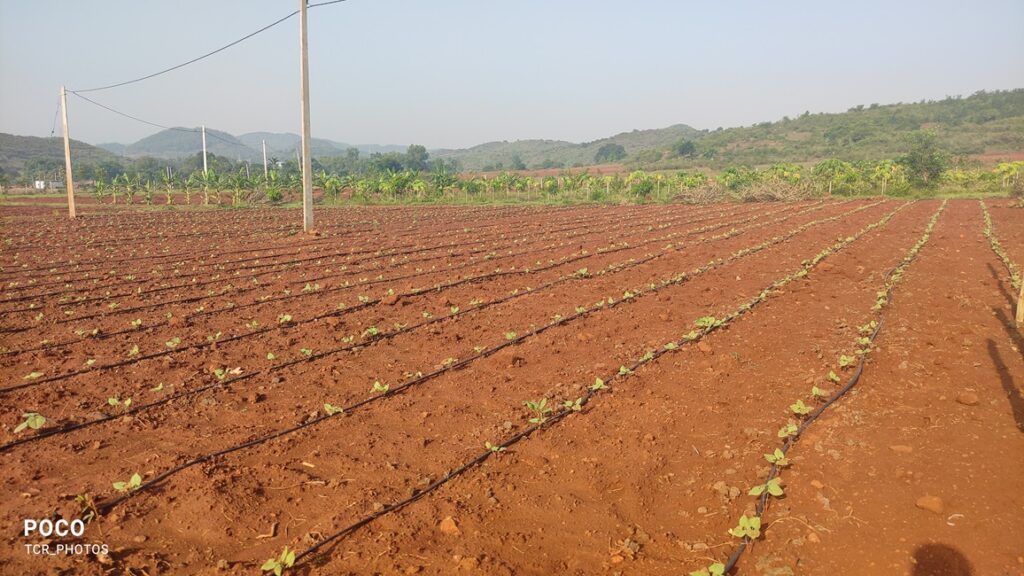
2. Improved Crop Yields
With drip irrigation, water is applied more consistently and uniformly, which helps to create an optimal growing environment for plants. The even distribution of water reduces the stress on plants, leading to healthier growth and, ultimately, higher yields.
For us, this has been evident across the farm. Our plantation crops, such as banana and sunflower, thrive under the steady moisture provided by drip irrigation. Similarly, our vegetable gardens and millet fields have shown improved growth rates and better overall health, leading to more bountiful harvests.
3. Efficient Use of Jeevamrutha
Drip irrigation also allows for the precise application of Jeevamrutha through the irrigation system. This method ensures that nutrients are delivered directly to the plant roots, where they are needed most.
At Dona Eco Farms, drip irrigation has allowed us to fine-tune the nutrient supply to our crops, resulting in more robust growth and improved resistance to pests and diseases. This targeted approach not only benefits our plants but also contributes to the sustainability of our farming practices by reducing the overall amount of nutrients needed.
4. Labor and Time Savings
Before installing drip irrigation, watering our crops was a labor-intensive task that took up a significant amount of time each day. With drip irrigation in place, the time and effort required to water our crops have been drastically reduced. The system is automated, meaning that we can set it to water our fields at specific times, ensuring that the plants receive consistent moisture without the need for manual intervention.
This automation has freed up valuable time that we can now dedicate to other essential farming tasks, such as crop monitoring, soil health management, and overall farm maintenance. It has also reduced the physical strain on our team, allowing us to focus on optimizing other areas of the farm.
5. Weed Control
One of the often-overlooked benefits of drip irrigation is its ability to help with weed control. Because drip irrigation delivers water directly to the roots of plants, the surrounding soil remains drier, reducing the growth of weeds that would otherwise compete with our crops for water and nutrients.
At Dona Eco Farms, we have noticed a significant reduction in weed growth since installing the drip irrigation system. This has not only reduced the amount of time and effort we need to spend on weeding but has also contributed to healthier crops by eliminating competition from unwanted plants.
6. Soil Health Preservation
Traditional irrigation methods can lead to soil erosion and nutrient runoff, which can degrade soil health over time. Drip irrigation, however, minimizes these issues by delivering water slowly and evenly to the soil. This helps to maintain soil structure, reduce erosion, and preserve the valuable nutrients that our crops need to thrive.
By preserving the health of our soil, we are investing in the long-term productivity of Dona Eco Farms. Healthy soil is the foundation of sustainable agriculture, and drip irrigation plays a crucial role in ensuring that our soil remains fertile and productive for years to come.
Conclusion:
The decision to install drip irrigation at Dona Eco Farms has been one of the most impactful choices we have made in our journey toward sustainable farming. This system has allowed us to use water more efficiently, improve our crop yields, and reduce labor, all while preserving the health of our soil.
The benefits of drip irrigation extend far beyond water conservation; it is a key component of our broader strategy to create a farm that is both productive and sustainable.
As we continue to grow and develop Dona Eco Farms, we remain committed to finding innovative solutions like drip irrigation that help us use our resources wisely and protect the environment. The success we have experienced with drip irrigation serves as a testament to the power of thoughtful planning and sustainable practices in agriculture. We hope that our story inspires others to explore the benefits of drip irrigation and other sustainable farming methods, as we all work together to create a more sustainable future for agriculture.

